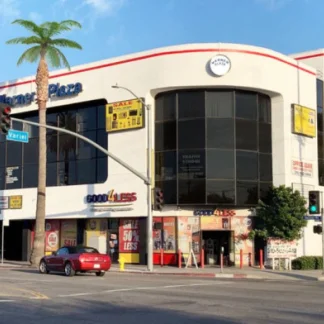Harmony Place
Harmony Place offers rehabilitation services for individuals with substance abus...
Located in Los Angeles, California, California Diversion Programs helps individuals who have been sentenced to jail receive alternative treatment sentences through an alcohol or drug rehab program instead of the judicial system. The court system and diversion program work together and may choose to place individuals into psychiatric care, psychological care, community programming, or an alcohol and drug rehab treatment center.
California Diversion Programs focuses on a person-centered approach to addiction treatment. Their programming includes:
California Diversion Programs functions on an outpatient basis. Individuals will work with dedicated staff to identify their core issues, along with probation officers, local court systems, and other suitable professionals. Clients will be placed in the most appropriate center for their condition and treatment needs.
California Diversion Programs does not take insurance directly. The institution individuals are assigned to can help them learn more about costs and insurance. If a person wants to use their insurance to pay for any type of treatment, they are encouraged to contact the provider because out of network benefits may vary.
Contact us for more information: (818) 716-0188

Connect with California Diversion Programs by calling their admissions team directly.
(818) 716-0188 Website Get DirectionsResearch clearly demonstrates that recovery is far more successful and sustainable when loved ones like family members participate in rehab and substance abuse treatment. Genetic factors may be at play when it comes to drug and alcohol addiction, as well as mental health issues. Family dynamics often play a critical role in addiction triggers, and if properly educated, family members can be a strong source of support when it comes to rehabilitation.
Group therapy is any therapeutic work that happens in a group (not one-on-one). There are a number of different group therapy modalities, including support groups, experiential therapy, psycho-education, and more. Group therapy involves treatment as well as processing interaction between group members.
In individual therapy, a patient meets one-on-one with a trained psychologist or counselor. Therapy is a pivotal part of effective substance abuse treatment, as it often covers root causes of addiction, including challenges faced by the patient in their social, family, and work/school life.
Life skills trainings involve all the skills a person must have in order to function successfully in the world. These include time management, career guidance, money management, and effective communication. Truly successful addiction recovery is based on the ability to not only live substance-free, but to thrive. Life skills teaches the practical necessities of functioning in society, which sets clients up for success in life, and therefore sobriety.
Group therapy is any therapeutic work that happens in a group (not one-on-one). There are a number of different group therapy modalities, including support groups, experiential therapy, psycho-education, and more. Group therapy involves treatment as well as processing interaction between group members.
In individual therapy, a patient meets one-on-one with a trained psychologist or counselor. Therapy is a pivotal part of effective substance abuse treatment, as it often covers root causes of addiction, including challenges faced by the patient in their social, family, and work/school life.
Life skills trainings involve all the skills a person must have in order to function successfully in the world. These include time management, career guidance, money management, and effective communication. Truly successful addiction recovery is based on the ability to not only live substance-free, but to thrive. Life skills teaches the practical necessities of functioning in society, which sets clients up for success in life, and therefore sobriety.
In individual therapy, a patient meets one-on-one with a trained psychologist or counselor. Therapy is a pivotal part of effective substance abuse treatment, as it often covers root causes of addiction, including challenges faced by the patient in their social, family, and work/school life.
Life skills trainings involve all the skills a person must have in order to function successfully in the world. These include time management, career guidance, money management, and effective communication. Truly successful addiction recovery is based on the ability to not only live substance-free, but to thrive. Life skills teaches the practical necessities of functioning in society, which sets clients up for success in life, and therefore sobriety.
Life skills trainings involve all the skills a person must have in order to function successfully in the world. These include time management, career guidance, money management, and effective communication. Truly successful addiction recovery is based on the ability to not only live substance-free, but to thrive. Life skills teaches the practical necessities of functioning in society, which sets clients up for success in life, and therefore sobriety.
Harmony Place offers rehabilitation services for individuals with substance abus...
Destinations - Canon House offers inpatient services for adolescents ages 13-17 ...
OPI is a private rehab located in Woodland Hills, California. OPI specializes in...
Changing Steps, located in Los Angeles, California, offers behavioral healthcare...